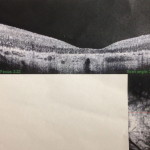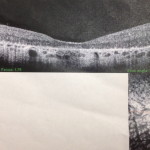This month’s warm weather, particularly our 65-degree Thanksgiving, brought back memories of Christmas Day last year, an oddly-warm 25th of December.
After opening numerous presents that morning, my then-5-year-old sat and played with her new treasures. After about 20 minutes she asked, “mom, aren’t there any more presents? I want some more.” I thought back to 3 years before when she was two-and-a-half years old, and how, after only 3 presents, she said nonchalantly. “that’s enough.” and refused to open more. She wanted to just play with the same 3 presents all day until finally being coaxed to open the rest later in the evening.
I couldn’t help but wonder when the shift from “plenty” to “empty” had occurred in my little girl. I imagine that gap between satisfaction and always-wanting-more will only increase as she gets older, as it does with almost all of us.
Could it be this feeling of want that creates the chaos surrounding the holidays despite the soft, underlying pleas for a peaceful, Silent Night?
I’m not lecturing here…. I clearly enjoy a good Black Friday sale and find myself craving the holiday craze at times. And I have definitely gotten myself wound up about a house that doesn’t feel decorated enough.
But the memory of a simple, satisfying trip to the graveyard with my family on Christmas Day last year evoked a desire in me for a quieter December this year.
I decided to adopt the “wrapped and done by December 1” motto so that I really can sit back and celebrate a peaceful holiday season this year. And it’s not just a lofty goal– I started shopping a bit this summer and finished today.
I’m ready for some Silent Nights.
I’m ready for more moments that match this one from Christmas last year:
It began after dinner at my grandma’s house. We usually take long family walks to digest our afternoon feast, usually to the nearby Riverwalk, but this particular year we decided to visit my grandfather’s gravesite about a mile away. Though buried 2 and a half years prior, his stone had just recently been engraved and we all wanted to see it and take a few moments to remember a man who was important to us
Weather-wise, this was a rare midwest day in December, reminiscent of late October, the faint scent of burning leaves and a hint of distant cold air to come. We walked without mittens, our feet free of heavy boots, the air far more refreshing than startling.
We arrived at the cemetery, our shoes crunching on leaves and our voices chattering away, signaling our arrival to the departed. I can only imagine my grandpa chuckling to himself, “You really know how to make an entrance.” he’d say with a dimpled grin.
While standing in a sloppy semi-circle around my grandpa’s grave, singing some of his favorite tunes, such as “Singing in the Rain” and “You Are my Sunshine”, I felt it– that nearly-extinct sense that everything is right in the world despite so many wrongs.
I think the moments that I sit back and say “enough” and sigh with deep satisfaction are few and far between, but I think they’re worth noting when they do occur.
It will probably be more difficult for my family to have that rare feeling of satisfaction this Christmas, as my grandmother recently had a stroke, and the fatigue of figuring out her care has been weighing on many. The future is uncertain, as it always is, I suppose, but a little less comfortably for the Kuhn family right now.
For me, this is all the more reason to keep things a little less chaotic this December.
This year, there is reason for the air to feel different during the holidays, and even if it is a little brisk at times, I hope to sit and breathe it in.










